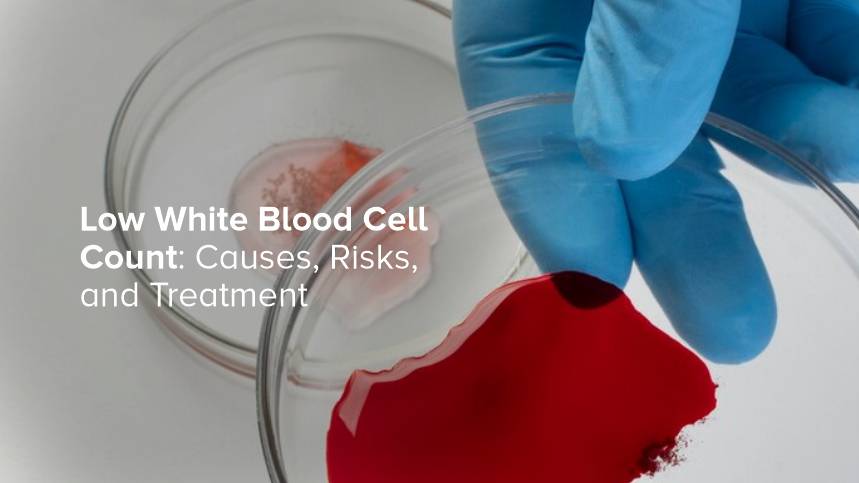


Condition
- Blood Disorders
- Blood Disorders
- Preventive Health Checkup
- Preventive Health Checkup
- Profile
- Kidney Disease
- Kidney Disease
- Diabetes
- Diabetes
- Heart Disease & Hypertension
- Preventive Health Checkup
- Lifestyle Packages
- Thyroid Disorder
- Diabetes
- Diabetes
- Diabetes
- Diabetes
- Diabetes
- Diabetes
- Diabetes
- Top tests
- Allergy
- Top tests
- Top tests
- Top tests
- Top tests
- Diabetes
- Top tests
- Diabetes
- Top tests
- Top tests
- Top tests
- Liver Disease
- Diabetes
- Top tests
- Vitamin Deficiency
- Top tests
- Top tests
- Liver Disease
- Top tests
- Top tests
- Top tests
- Anemia
- Anemia
- Anemia
- Diabetes
- Diabetes
- Anemia
- Top tests
- Top tests
- Top tests
- Preventive Health Checkup
- Thyroid Disorder
- Heart Disease & Hypertension
- Top tests
- Preventive Health Checkup
- Diabetes
- Heart Disease & Hypertension
- Top tests
- Fever
- Allergy
- Liver Disease
- Lifestyle Packages
- Heart Disease & Hypertension
- Top tests
- Arthritis
- Top tests
- Top tests
- Heart Disease & Hypertension
- Kidney Disease
- Preventive Health Checkup
- Allergy
- Top tests
- Lifestyle Packages
- Top tests
- Kidney Disease
- Top tests
- Lifestyle Packages
- Top tests
- Preventive Health Checkup
- Preventive Health Checkup
- Top tests
- Top tests
- Vitamin Deficiency
- Allergy
- Diabetes
- Top tests
- Top tests
- Top tests
- Top tests
- Heart Disease & Hypertension
- Allergy
- Top tests
- Preventive Health Checkup
- Top tests
- Top tests
- Infertility
- Top tests
- Lifestyle Packages
- Allergy
- Diabetes
- Heart Disease & Hypertension
- Lifestyle Packages
- Preventive Health Checkup
- Preventive Health Checkup
- Top tests
- Preventive Health Checkup
- Top tests
- Diabetes
- Top tests
- Infertility
- Top tests
- Thyroid Disorder
- Top tests
- Allergy
- Preventive Health Checkup
- Vitamin Deficiency
- Top tests
- Top tests
- Infertility
- Lifestyle Packages
- Diabetes
- Liver Disease
- Kidney Disease
- Vitamin Deficiency
- Top tests
- Heart Disease & Hypertension
- Heart Disease & Hypertension
- Top tests
- Heart Disease & Hypertension
- Heart Disease & Hypertension
- Heart Disease & Hypertension
- Infertility
- Heart Disease & Hypertension
- Vitamin Deficiency
- Vitamin Deficiency
- Arthritis
- Arthritis
- Top tests
- Top tests
- Lifestyle Packages
- Preventive Health Checkup
- Lifestyle Packages
- Preventive Health Checkup
- Vitamin Deficiency
- Top tests
- Lifestyle Packages
- Lifestyle Packages
- Preventive Health Checkup
- Top tests
- Preventive Health Checkup
- Top tests
- Heart Disease & Hypertension
- Infertility
- Top tests
- Top tests
- Preventive Health Checkup
- Lifestyle Packages
- Top tests
- PCOD
- Preventive Health Checkup
- Lifestyle Packages
- Preventive Health Checkup
- Top tests
- Fever
- PCOD
- Kidney Disease
- Top tests
- Top tests
- Preventive Health Checkup
- Preventive Health Checkup
- Liver Disease
- Thyroid Disorder
- Top tests
- Heart Disease & Hypertension
- PCOD
- Top tests
- Arthritis
- Preventive Health Checkup
- Kidney Disease
- Lifestyle Packages
- Top tests
- Allergy
- Top tests
- Top tests
- Diabetes
- Thyroid Disorder
- Preventive Health Checkup
- Top tests
- Lifestyle Packages
- Preventive Health Checkup
- Top tests
- Kidney Disease
- Liver Disease
- Infertility
- Top tests
- Anemia
- Top tests
- Top tests
- Top tests
- Preventive Health Checkup
- Bone Health
- Cancer
- Fatty Liver

Tests
Premature ejaculation (PE) is one of the most common sexual health concerns among men. Despite its prevalence, it remains an under-discussed topic, often met with embarrassment or silence by those affected. But recent advancements in medical research are shedding light on a surprising diagnostic tool—a blood test. Could this new development pave the way for more precise treatment options?
This blog dives into how blood tests could revolutionize the diagnosis and treatment of premature ejaculation, discussing what they measure, how they work, and what this means for the future of sexual health care.
Understanding Premature Ejaculation
What Is Premature Ejaculation?
Premature ejaculation is a condition where a man ejaculates sooner during sexual activity than he or his partner wishes. According to estimates, roughly 1 in 3 men experience PE at some point in their lives. While occasional instances may not indicate a medical issue, persistent PE can impact relationships, self-esteem, and overall quality of life.
Medical professionals categorize PE into two main types:
- Lifelong (Primary) PE: This has been present since a man’s first sexual experience and is often linked to biological factors.
- Acquired (Secondary) PE: This develops later in life, often resulting from stress, anxiety, or underlying medical conditions.
Why Is Diagnosis Challenging?
Diagnosing PE has traditionally relied on self-reported symptoms, questionnaires, and discussions about sexual history with a healthcare provider. While these tools provide valuable insights, they can be subjective and impacted by societal stigma or personal discomfort. This is where a blood test could offer an objective and biological perspective.
Could a Blood Test Diagnose Premature Ejaculation?
Recent studies suggest that hormonal imbalances or metabolic factors could play a significant role in PE. A blood test could help pinpoint potential abnormalities affecting ejaculatory control. Here are some of the biomarkers under investigation:
1. Serotonin Levels
Serotonin, the "feel-good" neurotransmitter, also regulates ejaculation. Research indicates that lower serotonin levels in the brain may contribute to premature ejaculation. Blood tests could assess serotonin levels indirectly by measuring metabolites or related hormonal activity.
2. Testosterone Levels
Hormonal fluctuations, particularly testosterone imbalances, have been implicated in sexual health problems, including PE. Blood tests measuring testosterone (total and free) could help rule out or identify hormonal deficiencies.
3. Thyroid Function
Both hyperthyroidism (overactive thyroid) and hypothyroidism (underactive thyroid) have been linked to sexual dysfunctions, including PE. Blood tests analyzing thyroid hormones like T3, T4, and TSH (thyroid-stimulating hormone) could help diagnose PE's root cause.
4. Prostate-Specific Markers
Though more commonly associated with prostate health, certain markers in the blood may provide clues to the underlying causes of ejaculation issues. For example, prostate-related inflammation could interfere with ejaculatory function.
Advantages of a Blood Test for PE
A reliable blood test for premature ejaculation could offer several benefits:
- Objective Diagnostics: Removes subjectivity and guesswork from diagnosis.
- Root Cause Analysis: Pinpoints biological factors influencing PE, making treatment more targeted.
- Faster Treatment Paths: Reduces the trial-and-error approach often associated with managing sexual health conditions.
- Monitoring Progress: Used over time, blood tests could track the effectiveness of treatments like medication or lifestyle changes.
What This Means for Treatment Options
A blood test providing insights into the biological underpinnings of PE could open new treatment avenues tailored to individual needs. For example:
Medications
A blood test identifying low serotonin levels could help doctors recommend selective serotonin reuptake inhibitors (SSRIs), known for delaying ejaculation in men.
Hormone Therapy
If testosterone levels are found to be abnormally low, testosterone replacement therapy (TRT) could restore normal hormone balance and improve ejaculatory control.
Thyroid Management
Men with thyroid imbalances could benefit from medications or therapies designed to stabilize thyroid hormone levels, indirectly reducing symptoms of PE.
Behavioral Interventions
For men without significant hormonal imbalances, blood test results could reassure them to focus instead on behavioral therapies or counseling to address psychological factors like anxiety.
Conclusion
The advent of blood testing for premature ejaculation marks a significant step forward in sexual health care. Coupled with traditional assessments, blood tests could redefine how we diagnose and treat this common condition—making the process more scientific, reliable, and personalized.
While widespread availability of these tests may still be years away, their potential to transform sexual health care provides hope for millions of men seeking answers.
If you experience symptoms of premature ejaculation, consult with a qualified healthcare professional.
WANT TO BOOK HEALTH CHECKUP ?
Categories
Blood Disorders
2
Preventive Health Checkup
26
Profile
1
Kidney Disease
8
Diabetes
20
Heart Disease & Hypertension
15
Lifestyle Packages
15
Thyroid Disorder
5
Top tests
68
Allergy
8
Liver Disease
6
Vitamin Deficiency
7
Anemia
5
Fever
2
Arthritis
4
Infertility
6
PCOD
3
Bone Health
1
Cancer
1
Fatty Liver
1
Recent Blogs
Low White Blood Cell Count: Causes, Risks, and Treatment
A low white blood cell count might not be something you think about often—until your...
28-04-2025
Low Hemoglobin? What Your CBC Test Says About Anemia
A Complete Blood Count (CBC) test offers a wealth of information about your health, often...
28-04-2025
The Role of Sputum Tests in Detecting Pneumonia
Pneumonia is one of the most common respiratory infections affecting millions of people...
28-04-2025







